How about AB Flavor of Mulankakoran Manor in AB, Kenya? analysis of roasting degree of Kenyan Coffee
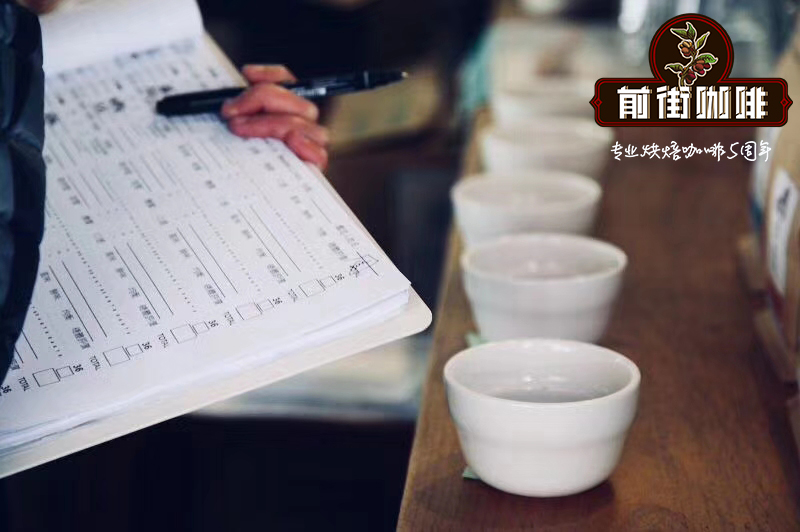
Mulanka Korian Manor, Kenya
Producing area: Mulanka producing area
Altitude: 1750 m
Treatment method: washing treatment
Grade: AB top
Coffee variety: SL28&SL34
Harvest year: 2019
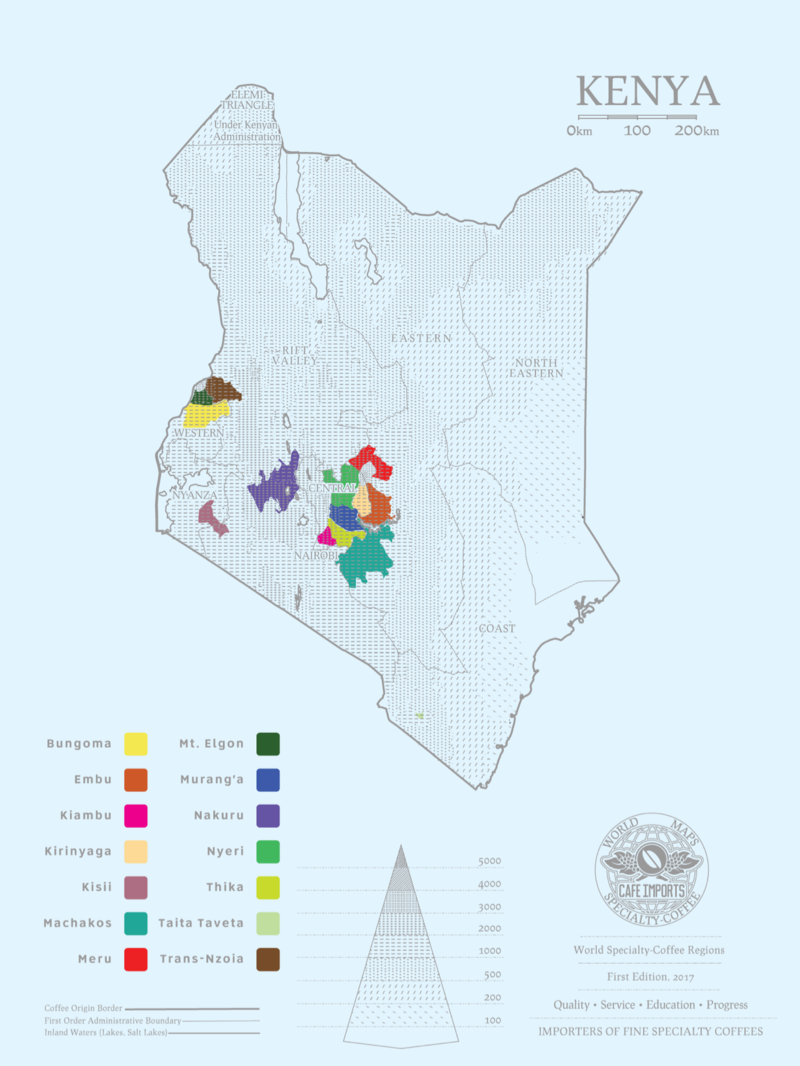
Coffee producing area
Mulanka producing area is located in the foothills of Kenya (Mount Kenya), close to the Neyri producing area. The fertile volcanic soil (volcanic loam) of Mount Kenya provides sufficient nutrients for coffee growth. There are two rainy seasons in this area every year, and the typical rainfall occurs in March-April and November-December respectively. The annual precipitation is abundant, and the coffee trees hardly need artificial irrigation. There are two harvest seasons in the producing area, the main harvest season (Main Harvest) from April to June and the secondary harvest season (Fly Crop) from October to December.
There are several coffee processing plants in the Mulanka producing area, and in principle, coffee farmers can choose nearby. Because of the way raw beans are sold in Kenya, coffee processing plants that can sell high prices tend to be more popular with farmers.
But Ryan Manor Kiriaini Estate
In 1978, Mrs. Rakeli Njeri Njoroge and five other family members founded the 39. 5-acre Colleen Manor.
But Ryan Manor coffee grows on the slopes of the Aberdale Mountains in the central highlands of Kenya south of the equator. SL28 and SL34 coffee varieties are grown at an altitude of about 1680-1850 meters. In addition to coffee, tea and bananas are also grown at Ke on Manor.
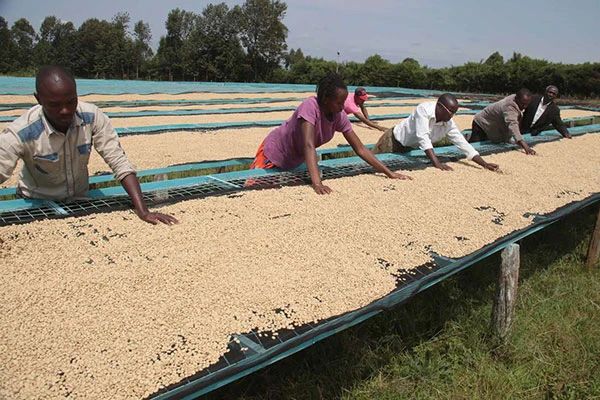
Kenyan coffee fruit is usually processed in a cooperative-affiliated washing processing station, while Ryan Manor has its own processing plant, which ensures that the coffee coming out of this treatment is the product of a single farm, rather than a mixture of fruit purchased by small farmers around the treatment station.
Treatment mode
72-hour fermentation water washing treatment is a cyclic repeated treatment method after harvest and fermentation. The best quality coffee cherries were selected on the harvest day, peeled and fermented for 24 hours, and then washed with clean river water 24 hours later.
Then, it is fermented with clean river water for 24 hours, then washed, and repeated 3 times for 72 hours, so it is called Kenyan 72-hour fermentation water washing treatment, referred to as K72.
Raw bean grade
Kenya coffee is graded according to the size, shape and hardness of coffee beans, divided into AA or AA+, AB, PB, C, E, TT, T from high to low.
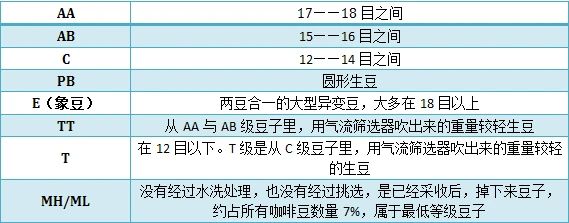
Coffee variety
In the 1930s, the newly established Scott Labs, commissioned by the Kenyan government, selected the varieties suitable for the country. 42 primary varieties were numbered and screened one by one, and finally got SL-28 and SL-34. The former comes from Bourbon, and SL-34 comes from iron pickup, which is not a series of varieties.
At the beginning, the goal of breeding SL28 was to produce a large number of coffee beans with high quality and resistance to diseases and insect pests, but in some producing areas, the goal of breeding was mainly high yield and disease resistance, without considering disease resistance.
Thanks to the bourbon gene, although the later SL28 yield was not as expected, the copper leaf color and broad bean-shaped beans have great sweetness, balance and complex flavor, as well as remarkable citrus and black plum characteristics.
SL34 is similar to SL28 in flavor, with a softer and cleaner finish than SL28, except for its complex acidity and great sweetness. SL34 has French missionaries, bourbon, and more Ironka lineage. The appearance of beans is similar to that of SL28 and is more suitable for rainforest growth.
Baking curve
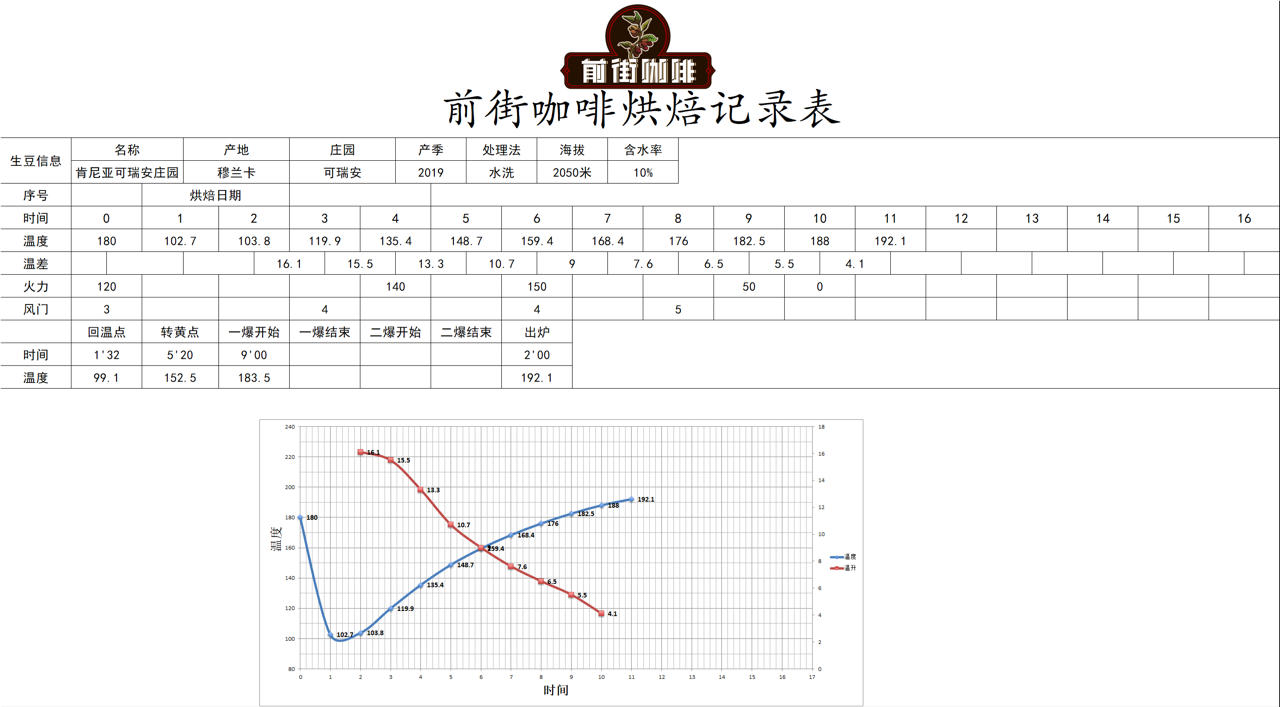
Test the flavor by cup

Important Notice :
前街咖啡 FrontStreet Coffee has moved to new addredd:
FrontStreet Coffee Address: 315,Donghua East Road,GuangZhou
Tel:020 38364473
- Prev

Malagasy coffee has a balance of sour and sweet.
Madagascar is a floating country in the Indian Ocean of Africa and is the fourth largest island in the world. The island is 1.6 times the size of Japan. Independence from France in 1960. It is said to be the smallest continent in the world, with its own flora and fauna, and a treasure trove of biodiversity. Arabica coffee from Madagascar is a type of bourbon, which was introduced by French missionaries in the mid-19th century.
- Next
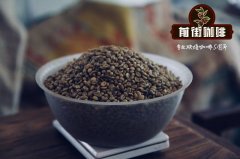
Panama BOP Champion Manor Casanova Manor Washed-Geisha Flavor How Rose Summer Coffee Bean Features
Country: PanamaRegion: Poquete Altitude: ca. 1500- 1675mTreatment: Washed Variety: Geisha Award: Best of Panama Champion Manor Flavors: Charming lemon peel, citrus, bergamot, apricot, peach, Earl Grey tea and aromatic floral aromas. Sucks with lemon tea sweet and sour taste, accompanied by bergamot, peach and orange blossom, Earl Grey tea
Related
- Detailed explanation of Jadeite planting Land in Panamanian Jadeite Manor introduction to the grading system of Jadeite competitive bidding, Red bid, Green bid and Rose Summer
- Story of Coffee planting in Brenka region of Costa Rica Stonehenge Manor anaerobic heavy honey treatment of flavor mouth
- What's on the barrel of Blue Mountain Coffee beans?
- Can American coffee also pull flowers? How to use hot American style to pull out a good-looking pattern?
- Can you make a cold extract with coffee beans? What is the right proportion for cold-extracted coffee formula?
- Indonesian PWN Gold Mandrine Coffee Origin Features Flavor How to Chong? Mandolin coffee is American.
- A brief introduction to the flavor characteristics of Brazilian yellow bourbon coffee beans
- What is the effect of different water quality on the flavor of cold-extracted coffee? What kind of water is best for brewing coffee?
- Why do you think of Rose Summer whenever you mention Panamanian coffee?
- Introduction to the characteristics of authentic blue mountain coffee bean producing areas? What is the CIB Coffee Authority in Jamaica?

